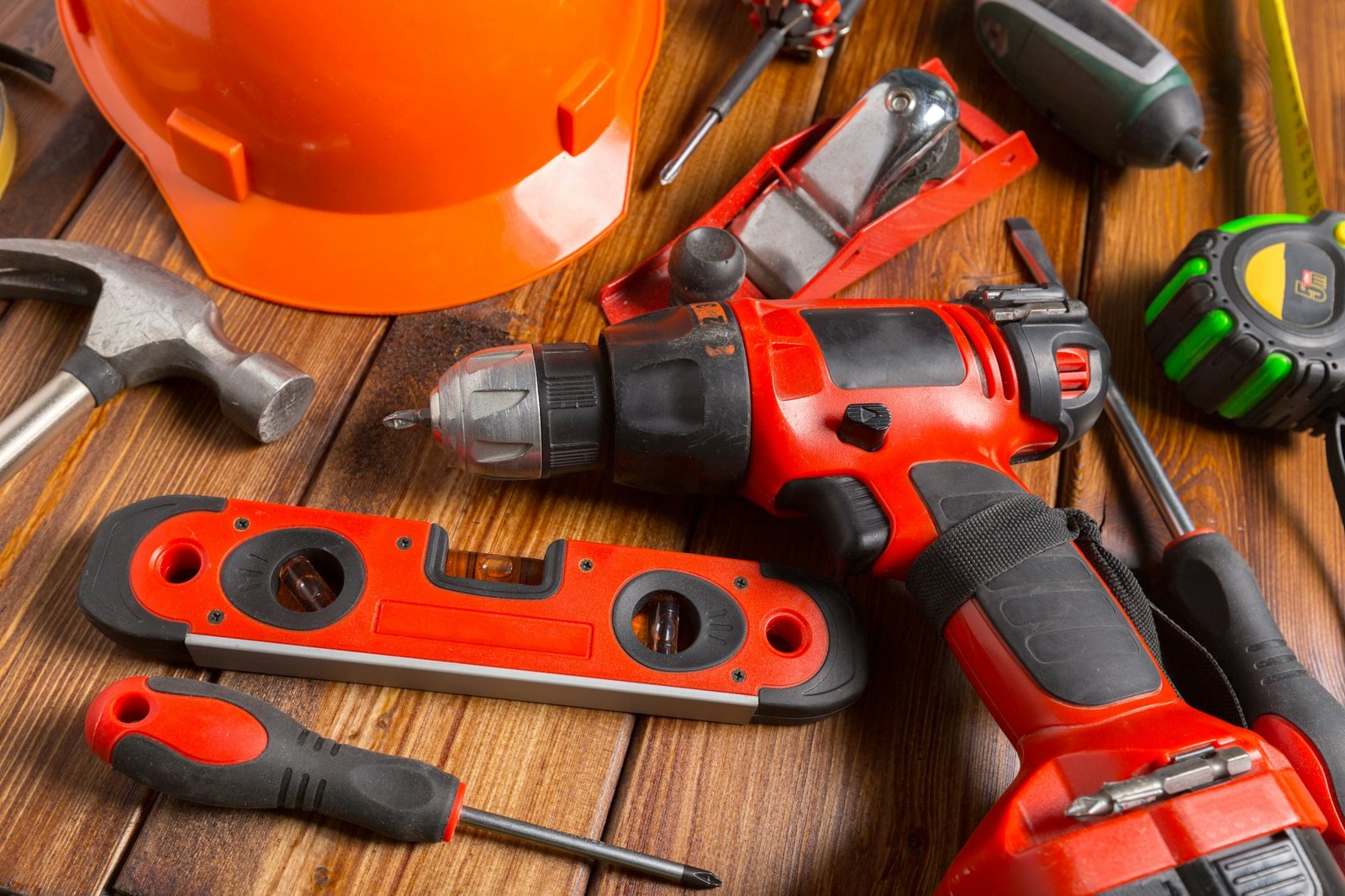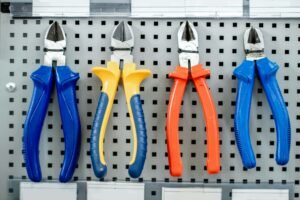Introduction: Hardware tools play an indispensable role in various industries, from construction and manufacturing to maintenance and repair. Understanding the basics of hardware tools is essential for both professionals and DIY enthusiasts alike. In this article, we embark on a journey to explore the fundamentals of hardware tools, covering their types, uses, maintenance, and safety precautions.
Types of Hardware Tools:
- Hand Tools:
- Hand tools are manually operated tools designed for tasks such as gripping, cutting, tightening, and measuring.
- Common hand tools include wrenches, screwdrivers, pliers, hammers, and tape measures.
- They are essential for tasks requiring precision, control, and accessibility in confined spaces.
- Power Tools:
- Power tools are electrically or pneumatically powered tools that enhance efficiency and productivity.
- Examples of power tools include drills, saws, grinders, sanders, and impact wrenches.
- They are ideal for heavy-duty tasks, repetitive operations, and tasks requiring high precision and speed.
- Measuring and Marking Tools:
- Measuring and marking tools are used for accurate measurement, layout, and marking of materials.
- Common measuring tools include rulers, tape measures, calipers, and squares.
- Accurate measurement is essential for ensuring precision and quality in construction, woodworking, and metalworking projects.
- Cutting and Shaping Tools:
- Cutting and shaping tools are utilized for cutting, shaping, and forming various materials.
- Examples include saws, knives, chisels, files, and routers.
- Proper selection and maintenance of cutting tools are crucial for achieving clean cuts, smooth finishes, and precise shapes.
Uses of Hardware Tools:
- Construction and Carpentry:
- Hardware tools are indispensable in construction and carpentry for tasks such as framing, fastening, cutting, and finishing.
- Commonly used tools include hammers, drills, saws, screwdrivers, and levels.
- Automotive Repair and Maintenance:
- Hardware tools are essential for automotive repair and maintenance tasks, including engine repair, brake servicing, and bodywork.
- Tools such as wrenches, sockets, ratchets, pliers, and jacks are commonly used in automotive workshops and garages.
- Home Improvement and DIY Projects:
- Hardware tools are widely used in home improvement and DIY projects, ranging from minor repairs to major renovations.
- DIY enthusiasts rely on tools such as drills, sanders, paint brushes, pliers, and ladders to complete projects around the house.
- Industrial Manufacturing and Machining:
- Hardware tools are integral to industrial manufacturing and machining processes, including metalworking, machining, and fabrication.
- Precision tools such as lathes, milling machines, grinders, and CNC machines are utilized in manufacturing facilities and workshops.
Maintenance and Care:
- Regular Cleaning:
- Keep tools clean and free of debris to prevent corrosion and damage.
- Wipe down tools with a clean cloth after use and store them in a dry, well-ventilated area.
- Lubrication:
- Apply lubricating oil or grease to moving parts to reduce friction and wear.
- Regularly lubricate hinges, gears, and cutting edges to maintain smooth operation.
- Inspection:
- Periodically inspect tools for signs of wear, damage, or malfunction.
- Replace worn or damaged parts and perform necessary repairs to ensure safe and efficient operation.
Safety Precautions:
- Personal Protective Equipment (PPE):
- Wear appropriate PPE, including safety glasses, gloves, ear protection, and respiratory protection, when using hardware tools.
- PPE helps protect against hazards such as flying debris, noise, and chemical exposure.
- Read and Follow Instructions:
- Read the manufacturer’s instructions and safety guidelines before using any hardware tool.
- Follow proper operating procedures and safety precautions to prevent accidents and injuries.
- Use Tools Correctly:
- Use tools for their intended purpose and avoid misuse or improvisation.
- Do not use damaged or defective tools, and always use the right tool for the job.
- Secure Workpieces:
- Secure workpieces properly using clamps, vises, or other holding devices to prevent movement or slippage during operation.
- Maintain a stable work surface and keep hands and fingers away from moving parts and cutting edges.
Conclusion: Understanding the basics of hardware tools is essential for safe and efficient use in various applications. Whether you’re a professional tradesperson, a hobbyist, or a DIY enthusiast, knowledge of hardware tools enables you to tackle projects with confidence and precision. By familiarizing yourself with the types, uses, maintenance, and safety precautions of hardware tools, you can enhance your skills, productivity, and safety in the workshop or job site.






